Car manufacturers positioning themselves at the fore of technology is not a new thing. With its car-sharing service ‘DriveNow’, BMW and Mini have successfully ventured into a new market, and now the Munich-based manufacturers have begun to experiment in other areas of mobility. At the Salone del Mobile in Milan this week, Mini made its first foray into the world of urban living, with an admirable installation it called ‘Mini Living’. Returning to its roots and the ‘creative use of space’ principles of the original Mini, the exhibition is more relevant than ever thanks to the lack of housing and the density of modern cities.
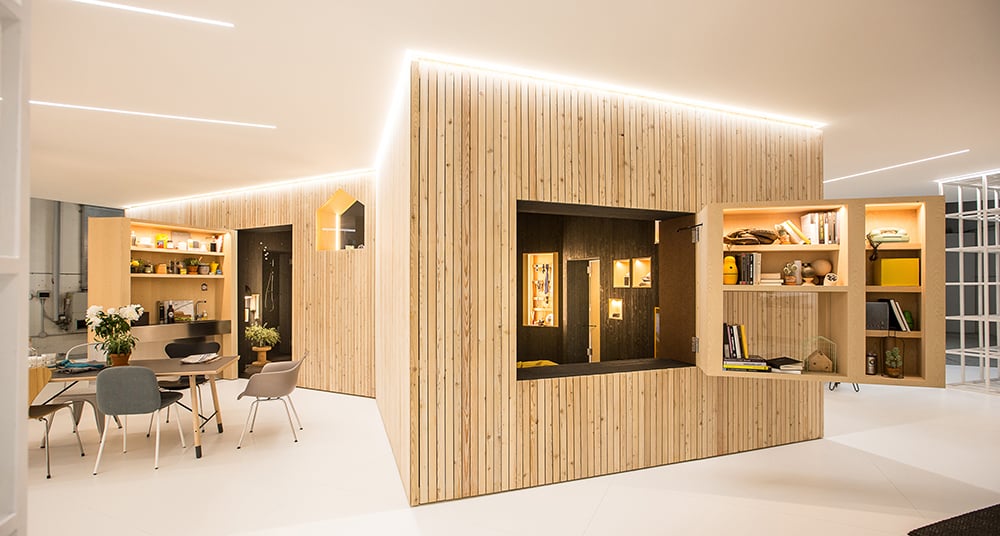
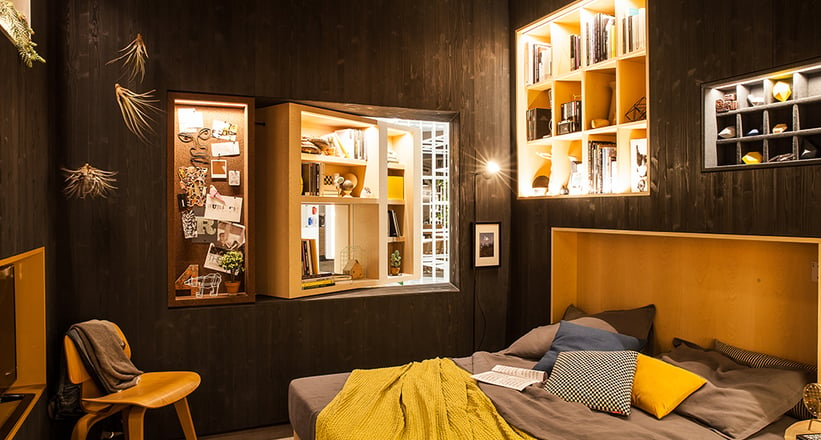
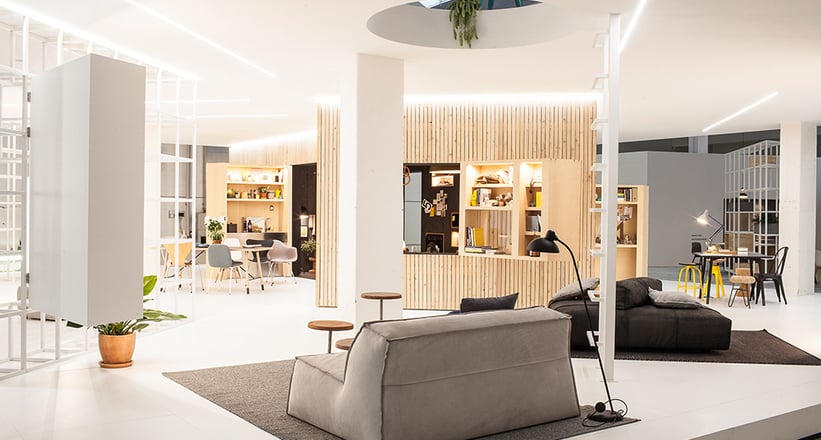
For residents of big cities such as Milan, Berlin, London or Tokyo, a life in a sought-after property has its price. Housing is extremely limited – it’s not uncommon to have 100 people view a property, often resulting in unrealistic and unfair prices being realised. Existing space, therefore, must be shared and used intelligently. In the centre of a warehouse in Milan’s trendy Zona Cortona, you’ll find Mini’s 30-square-metre apartment that, if placed together with similar units, could potentially form a ‘micro-neighbourhood’. The walls can be partially opened, so that shelves, a music system or the kitchen can be shared with your neighbours.
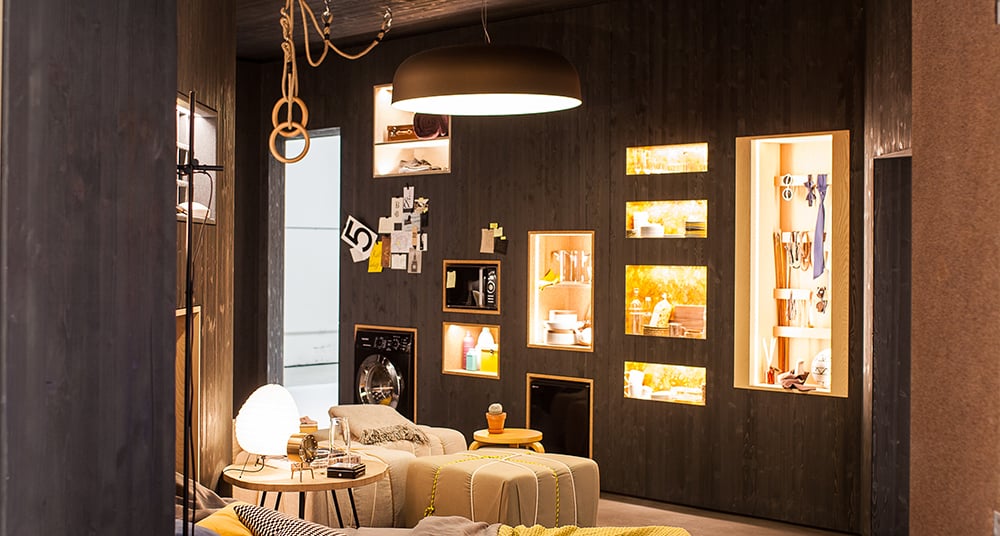

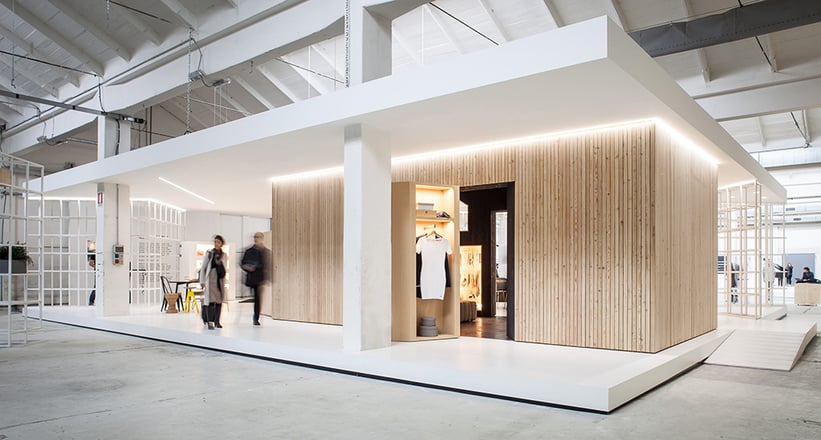
“By installing ‘Mini Living’, we wanted to contribute to the discussion of how we want to live together affordably in the future,” said Oke Hauser, the head of the project who’s already implemented several ‘micro-housing’ projects in other cities. “More and more people will increasingly share space in the cities, and this installation combines privacy and community, all the while retaining a compact footprint.”
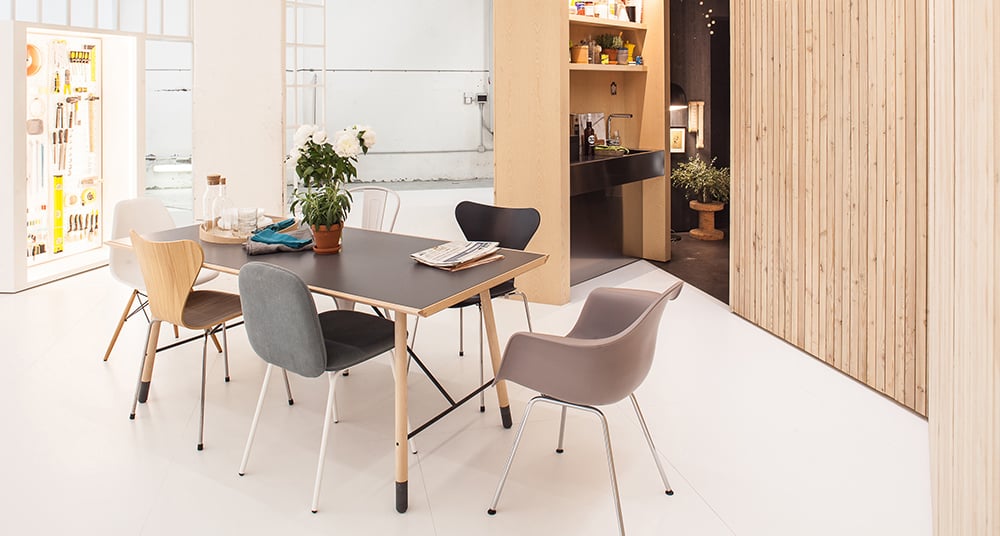
The idea is certainly not a new one – modernists such as Le Corbusier were asking the same thing a century ago, and even the engineer and architect Jean Prouvé experimented with the idea in the post-War period. Perhaps now Mini can change the perception of shared residential living.




















